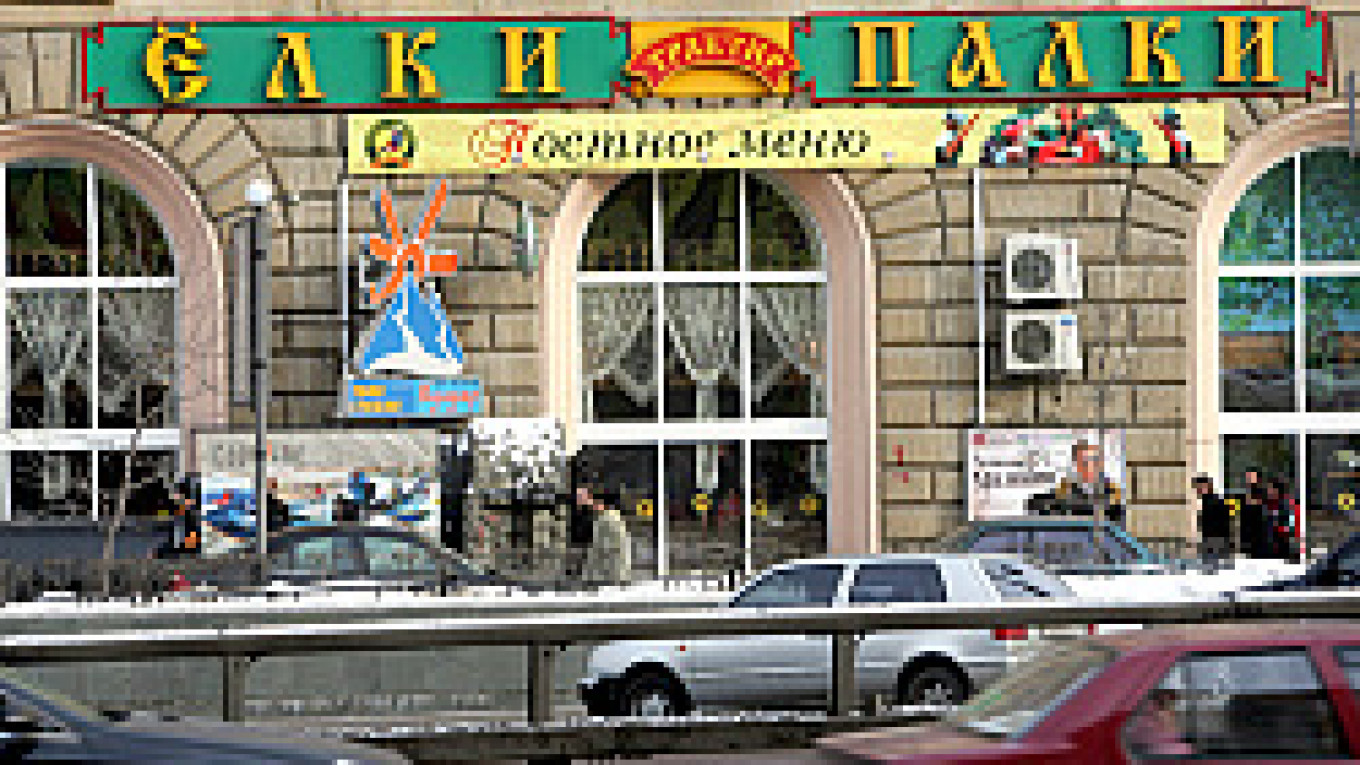Novikov, 44, a former chef who was once rejected for a job at Moscow's first McDonald's, is in talks with banks and considering a listing in London in the last quarter of 2007, the sources said.
"Investors are diversifying away from natural resources. International investors want exposure to the consumer sector. This kind of IPO will fly in the current environment," one source said.
But Novikov denied the report. "We are doing nothing in this direction," a representative for Novikov said.
Financial data are hard to come by on Novikov's fast-growing empire of 100 restaurants that run the gamut from sleek Asian fusion to vodka-soaked cuisines, all at eye-popping prices.
But with petrodollars filling the pockets of the newly rich, the market is growing by at least 20 percent per year, said Natasha Zagvozdina, an analyst at Renaissance Capital.
In a city with more billionaires than anywhere else in the world -- 33 and rising according to Forbes magazine -- Novikov unashamedly caters to the fantastically rich and counts President Vladimir Putin among his list of celebrity diners.
Banking sources said Novikov wanted to focus on the top end of the business and might sell Yolki Palki, a chain where waiters dressed as peasants serve popular Russian cuisine.
Novikov also runs greenhouses outside Moscow to keep clients supplied with organic tomatoes and wild strawberries throughout the winter. He employs more than 12,000 people in a business that includes delis and food boutiques such as Globus Gourmet where Moscow's urban elite can shop for Italian raspberry-flavored balsamic vinegar and cooking sea salt from Portugal.
Like changing Russian tastes, Novikov restaurants have moved on from gaudy early spots like an Uzbek joint with belly dancers and live cockfights to tasteful refuges of muted chocolate browns where diners nibble $30 salads while ogling one another.
But in an unruly society where businessmen still settle scores with guns, real life every now and then gets close to gangster movies. A businessman was shot dead with Kalashnikov rifles this month a few blocks down from one of Novikov's restaurants on Denezhny Pereulok, residents said.
Analysts estimate the restaurant market in Moscow is worth $4.5 billion, one-third of it in casual dining.
Zagvozdina said the average household spent only about 3 percent of its annual income of some $3,500 per capita on dining out while in Moscow. The average for households that earn three times that was roughly 7 percent -- a fraction of that in developed countries, she said.
"There is huge upside in this business," she said.
A Message from The Moscow Times:
Dear readers,
We are facing unprecedented challenges. Russia's Prosecutor General's Office has designated The Moscow Times as an "undesirable" organization, criminalizing our work and putting our staff at risk of prosecution. This follows our earlier unjust labeling as a "foreign agent."
These actions are direct attempts to silence independent journalism in Russia. The authorities claim our work "discredits the decisions of the Russian leadership." We see things differently: we strive to provide accurate, unbiased reporting on Russia.
We, the journalists of The Moscow Times, refuse to be silenced. But to continue our work, we need your help.
Your support, no matter how small, makes a world of difference. If you can, please support us monthly starting from just $2. It's quick to set up, and every contribution makes a significant impact.
By supporting The Moscow Times, you're defending open, independent journalism in the face of repression. Thank you for standing with us.
Remind me later.


